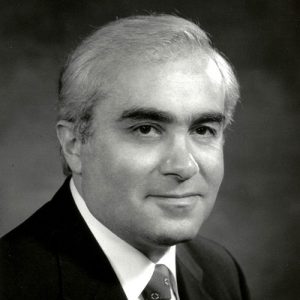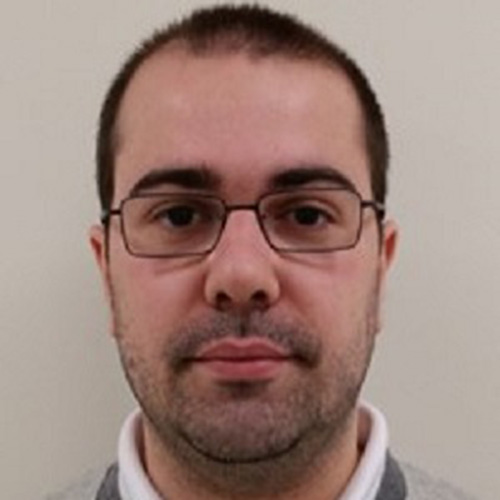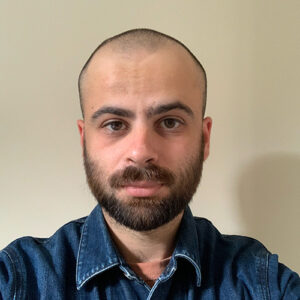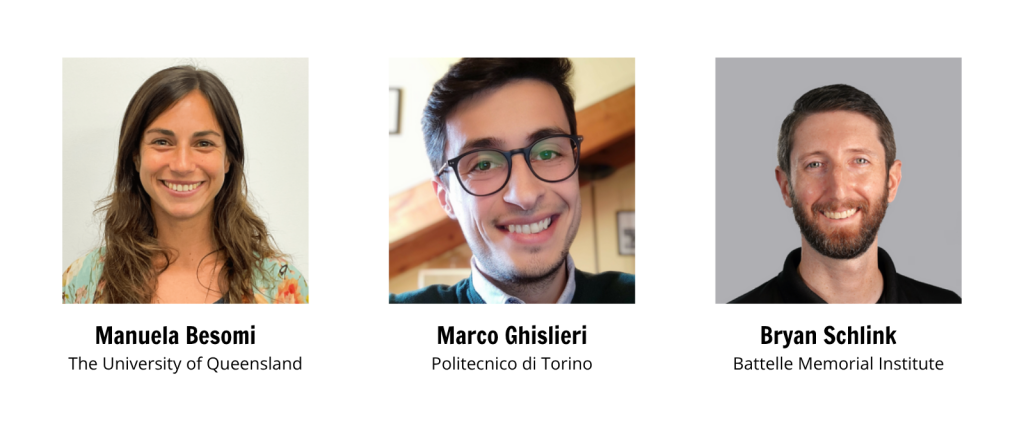Carlo J. DeLuca Award
The Carlo J. DeLuca Award recognizes outstanding early-career researchers who have contributed to technological advances in EMG acquisition and signal processing.

About Carlo J. DeLuca
Carlo J. DeLuca is widely recognized for introducing engineering principles to the field of Neurophysiology and more recently for combining principles of Motor Control with the fundamentals of Biomechanics. His research has made breakthroughs on the frontiers of neuromuscular control, signal processing, and electromyographic sensor technology. He authored 122 peer-reviewed articles, 21 book chapters, and 26 patents. His writings have been cited over 21,000 times. His body of work includes “Muscles Alive”, often referred to as the “bible of electromyography”. Prof. DeLuca made lasting contributions to ISEK. He assisted John Basmajian, his mentor, in setting up the initial structure of ISEK. He served twice as past president of ISEK (1988 and 1990) and organized the highly successful ISEK 1979 Congress in Boston. Under his presidency he established the Journal of Electromyography & Kinesiology and served as its Editor-in-Chief. Professor DeLuca believed strongly in providing opportunities for young investigators and trained more than forty M.S. and Ph.D. students. Many of these individuals are now leading researchers and engineers in the field.
DeLuca Award Nominations 2026
ISEK is pleased to invite nominations for the novel Carlo J. De Luca Award. This honor recognizes outstanding early-career researchers who have contributed to technological advances in EMG acquisition and signal processing.
All finalists will receive a complimentary Congress registration and a $500 travel honorarium. Finalists will be invited to present at the Congress. The winner will be selected by the votes of three judges based on the quality and content of the presentations.
The winner will be given the opportunity to organize a virtual mini symposium related to the awardee’s primary research interest, highlighting research from other early career scientists.
Qualifications
An individual who:
• Contributed to technological advances that have advanced EMG acquisition, signal processing, or fundamental understanding,
• Must have received PhD less than 8 years prior to the next ISEK Congress. Extensions will be considered for leave due to personal of family obligations that impede the career trajectory.
• Ideally is a member of ISEK, but not essential.
Nomination
We encourage members to recognize the current diversity in our field when making nominations. To nominate an individual or self-nominate, please submit the following:
• Nominations should include a brief description of the nominee’s most significant technical accomplishments (500 words or less),
• CV of the nominee.
Nominations open September 15, 2025
Nominations close October 31, 2025
Nominations should be submitted via email to the Society at:
Award Conflict of Interest Policy
To uphold the integrity and fairness of our ISEK’s award selection processes, the following guidelines are established for Council members involved in nominations and voting of ISEK fellowship nominations, awards connected to the ISEK congress and the selection of the congress chair:
- Eligibility and Participation:
-
- Nominee status: Council members can nominate themselves to be a Congress Chair, but not for ISEK awards or ISEK fellowships.
- Discussion and voting for Congress Chair: In the case that a council member has expressed an interest in becoming the next Congress Chair, they must recuse themselves from all discussions and voting related to the selection process.
- Discussion and voting for ISEK awards including the ISEK Fellow: Council members who nominate individuals for ISEK awards including the ISEK fellowship are permitted to participate in the voting process, provided they disclose any potential conflicts of interest.
-
- Disclosure of Potential Conflicts:
-
- Prior to the commencement of any deliberations for ISEK fellowships, awards connected to the ISEK Congress, and the selection of the Congress Chair, Council members must disclose any relationships or circumstances that could be perceived as a conflict of interest. These include, but are not limited to:
-
-
- Close personal relationships (e.g., family members, partners, close friends).
- Professional relationships (e.g., current or former students, advisors, close collaborators).
- Co-authorships or joint projects in the last 5 years.
- Affiliation with the same institution as the nominee.
-
-
- Prior to the commencement of any deliberations for ISEK fellowships, awards connected to the ISEK Congress, and the selection of the Congress Chair, Council members must disclose any relationships or circumstances that could be perceived as a conflict of interest. These include, but are not limited to:
-
- Assessment and Management:
-
- Disclosed conflicts will be assessed on a case-by-case basis by the Past President, who does not hold voting rights, to determine the appropriate course of action. This may include recusal from specific discussions or votes.
- The Chair of the selection committee will document all disclosures and the measures taken to manage each conflict.
-
- External Reviewers:
-
- A minimum of five eligible voting members is required for each award decision. If fewer than five Council members remain eligible due to recusals, the Council may appoint external reviewers or establish an ad-hoc independent committee to reach the required number and ensure a fair and unbiased selection process appoint.
-
- Confidentiality:
-
- All deliberations, discussions, and materials related to the award selection process are to be kept confidential. Council members must not share information about nominees, deliberations, or outcomes outside the committee.
-
2026 Finalists

Hélio Cabral
Federal University of Rio de Janeiro
Dr. Hélio Cabral holds an MSc and PhD in Biomedical Engineering from the Federal University of Rio de Janeiro, Brazil. He completed postdoctoral fellowships at the University of Birmingham (UK) and subsequently at the University of Brescia (Italy), where he worked under the supervision of Prof. Francesco Negro. He is currently an Assistant Professor of Kinesiology at the Federal University of Rio de Janeiro. His research focuses on neuroengineering and the applied physiology of the neuromuscular system, with particular emphasis on electromyography (EMG) acquisition, signal processing, and motor unit behaviour. By integrating high-density surface EMG, motor unit decomposition, and experimental manipulations of neuromechanical constraints, his research aims to investigate the neural control of human movement and to advance the interpretation of EMG-derived neural signals in contexts including exercise, neural plasticity, and neuromuscular disorders.

Giacinto Luigi Cerone
Polytechnic University of Turin
Giacinto Luigi Cerone is a Tenure Track Assistant Professor at Polytechnic University of Turin (Italy), where he teaches the Programmable Biomedical Devices course. He obtained the M.Sc. and the Ph.D in Biomedical Engineering, summa cum laude, from Polytechnic University of Turin, in 2014 and 2019 respectively. His research activities are carried out at the Laboratory for Engineering of the Neuromuscular System (LISiN). His research is mainly focused on the hardware, firmware, software design and certification of modular, wireless and embedded systems for the acquisition of HD-sEMG and EEG signals, and for neuromuscular electrical stimulation. His research is characterized by a strong technology transfer activity that led to eight patents. He designed and developed/co-developed different kinds of technologies applied to a broad range of fields: from basic neurophysiology (US-transparent HD-sEMG grids of electrodes) to clinics (wearable electrical stimulators for the foot-drop correction), sport (study of elite athletes’ performance), and ergonomics (evaluation of neuromuscular adaptations following the use of exoskeletons). He is author/co-author of more than forty papers on the design of biomedical instrumentation for neuromuscular system research. In 2020, he was awarded as Innovative Engineer of the Year by the Turin Engineering Association.
2024 Awardee

Simon Avrillon
Imperial College London
2022 Awardees

